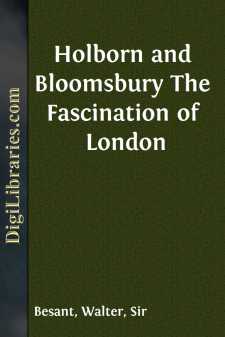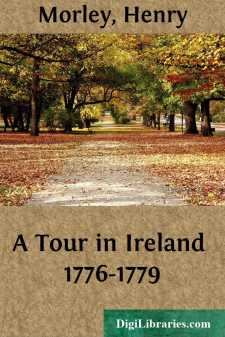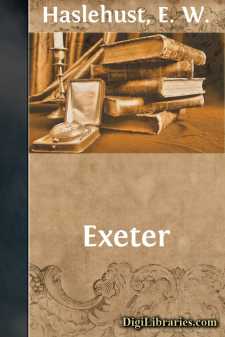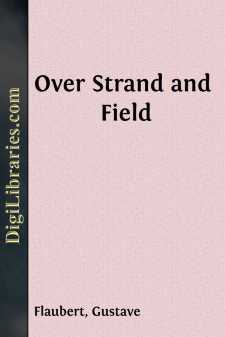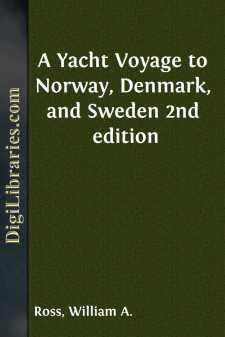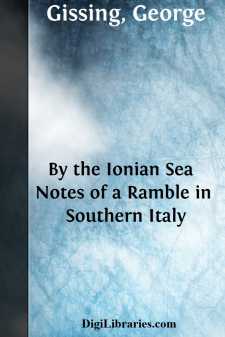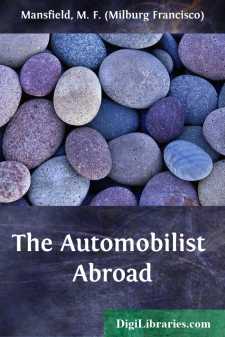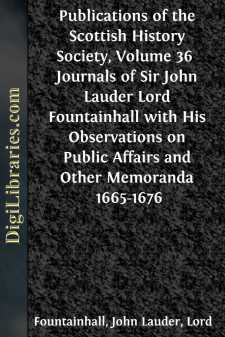Travel
- Africa 29
- Alaska 3
- Asia 46
- Australia & Oceania 26
- Canada 31
- Caribbean & West Indies 5
- Central America 1
- Europe
- General 39
- Maps & Road Atlases 1
- Mexico 10
- Middle East 18
- Polar Regions 7
- Reference 11
- Restaurants 1
- Russia 6
- South America 16
- United States 71
Europe Books
Sort by:
by:
Walter Besant
PREFATORY NOTE A survey of London, a record of the greatest of all cities, that should preserve her history, her historical and literary associations, her mighty buildings, past and present, a book that should comprise all that Londoners love, all that they ought to know of their heritage from the past—this was the work on which Sir Walter Besant was engaged when he died. As he himself said of it:...
more...
by:
Henry Morley
INTRODUCTION. Arthur Young was born in 1741, the son of a clergyman, at Bradfield, in Suffolk. He was apprenticed to a merchant at Lynn, but his activity of mind caused him to be busy over many questions of the day. He wrote when he was seventeen a pamphlet on American politics, for which a publisher paid him with ten pounds’ worth of books. He started a periodical, which ran to six numbers. ...
more...
by:
E. W. Haslehust
THE CITY Just as the five cities of Colchester, Lincoln, York, Gloucester, and St. Albans, stand on the sites and in some fragmentary measure bear the names of five Roman municipalities, so Isca Dumnoniorum, now Exeter, appears to have been a cantonal capital developed out of one of the great market centres of the Celtic tribes, and as such it was the most westerly of the larger Romano-British towns....
more...
I.—Italiam Petimus. Italiam petimus! We left our upland home before daybreak on a clear October morning. There had been a hard frost, spangling the meadows with rime-crystals, which twinkled where the sun's rays touched them. Men and women were mowing the frozen grass with thin short Alpine scythes; and as the swathes fell, they gave a crisp, an almost tinkling sound. Down into the gorge,...
more...
by:
Gustave Flaubert
CHAPTER I. CHÂTEAU DE CHAMBORD. We walked through the empty galleries and deserted rooms where spiders spin their cobwebs over the salamanders of Francis the First. One is overcome by a feeling of distress at the sight of this poverty which has no grandeur. It is not absolute ruin, with the luxury of blackened and mouldy débris, the delicate embroidery of flowers, and the drapery of waving vines...
more...
COMMON LODGING HOUSES, CADGERS, &c., &c. These two subjects are, perhaps now the only ones remaining, in what is termed the “walks of life,” of which a correct description has not yet been given. All the old topics, such as the beauties of the country, and the ancient stories of love and heroism, which have afforded so much employment to the pencil, the muse, and the worker-up of novels,...
more...
by:
William A. Ross
CHAPTER I. DEPARTURE FROM GREENWICH—THE HISTORY OF THE IRIS YACHT—SHEERNESS—HARWICH—UNDER WEIGH—THE NORTH SEA—SAIL IN SIGHT—THE MAIL OVERBOARD—SPEAKING THE NORWEGIAN. I believe the old Italian proverb says, that every man, before he dies, should do three things: "Get a son, build a house, and write a book." Now, whether or not I am desirous, by beginning at the end, to end at...
more...
by:
George Gissing
CHAPTER I This is the third day of sirocco, heavy-clouded, sunless. All the colour has gone out of Naples; the streets are dusty and stifling. I long for the mountains and the sea. To-morrow I shall leave by the Messina boat, which calls at Paola. It is now more than a twelvemonth since I began to think of Paola, and an image of the place has grown in my mind. I picture a little marina; a yellowish...
more...
Chapter I We have progressed appreciably beyond the days of the old horseless carriage, which, it will be remembered, retained even the dashboard. To-day the modern automobile somewhat resembles, in its outlines, across between a decapod locomotive and a steam fire-engine, or at least something concerning the artistic appearance of which the layman has very grave doubts. The control of a restive horse,...
more...
INTRODUCTION THE MANUSCRIPTS There are here printed two manuscripts by Sir John Lauder, Lord Fountainhall, and portions of another. The first[1] is a kind of journal, though it was not written up day by day, containing a narrative of his journey to France and his residence at Orleans and Poictiers, when he was sent abroad by his father at the age of nineteen to study law in foreign schools in...
more...


